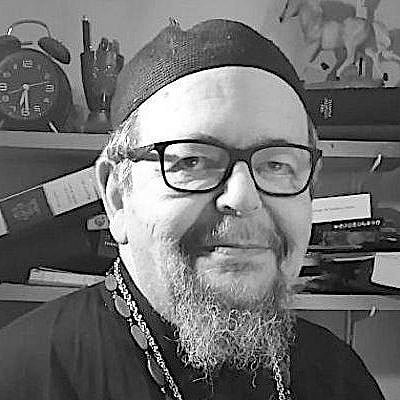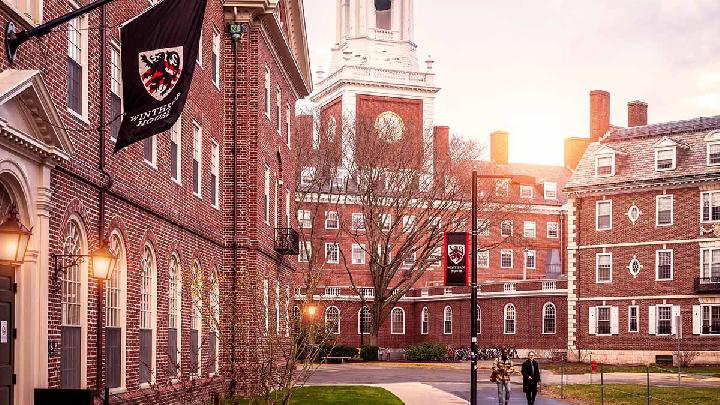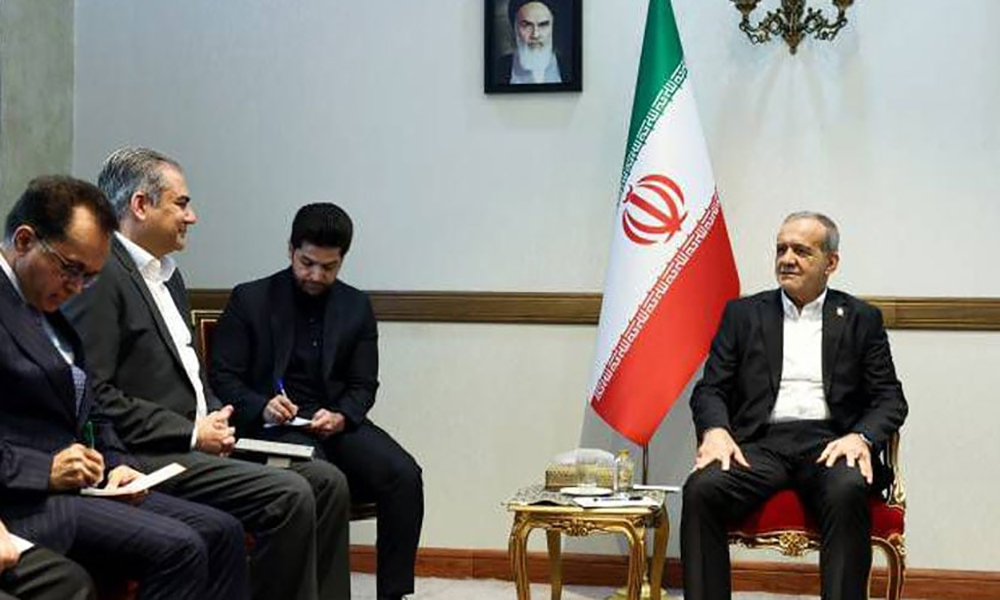Copyright timesofisrael

Every year November 11 arrives with its familiar ritual quiet: ceremonies, wreaths, silence, the thin cry of the bugle. The date marks the armistice of 1918 – a ceasefire, not peace. The guns were ordered to stop. Men climbed out of trenches, dazed, wounded, uncomprehending. But history did not conclude; it merely inhaled. Armistice is not reconciliation. It is an interruption, a breath between convulsions. And with time, we see more clearly that what we call “the end” of the First World War was only the first breath between ruptures. The war did not end. It reconfigured itself, seeping into borders, ideologies, migration streams, religious tensions, and the interior lives of nations and people. It continues to shape the world — not only as memory, but as unfinished process. For in 1918, empires did not merely fall. The very architecture of history cracked. Ancient structures of authority – dynasty, sacral legitimacy, inherited temporal order – collapsed in a single generation. Thrones emptied, altars trembled, and political imagination was forced into improvisation. The modern nation-state emerged not through slow organic growth but through necessity, drafted quickly onto the ruins of sovereignty and faith. Thus began the twentieth century not as a time of secure progress, but of profound rupture and anxious reinvention. The Middle East and the unfinished map Where Europe eventually layered institutions upon its ruins, the Middle East never left that moment. The collapse of the Ottoman world created not stability, but a wound of disorientation. Sacred geography – Jerusalem, Mecca, Damascus, Anatolia – found itself rearranged not by memory or pilgrimage but by exhausted imperial hands drawing new lines on tired maps. Borders emerged from fatigue more than from history. Sykes–Picot. Balfour. San Remo. These terms sit in textbooks as diplomatic facts. Yet they hover like labels over a deeper truth: ancient nations do not vanish because modernity demands simplicity. The return of Jewish sovereignty, after millennia of prayers and dispersion, was treated by many as a colonial clause or post-Holocaust concession, when in truth it was – and is – the re-emergence of covenant and ancient memory into modern history, a unique model of “human grafting back home” over ages of constant hope and rooted identity. British signatures managed paperwork; they did not author destiny. Zion did not appear because empire permitted it; Zion returned because history remembered itself and projects it into the dynamics of future. Twentieth-century universalism, noble in aspiration, assumed a single form of humanity. But universalism cannot be built on the erasure of peoples whose roots precede empires. True universality must learn to honor the depth of belonging, not dissolve it. The desert rises – and the world blinks Meanwhile, the world never expected the desert itself to rise. It thought dunes would remain dunes, tribes would remain tribes, and ancient tongues would stay in prayer books. Yet here we stand: Israel restored; Hebrew spoken by children in playgrounds; the Arabian Peninsula transformed into a sphere of global influence. Cities like Abu Dhabi and Doha appearing not as fantasies but as powerful realities. Tribal genealogies alongside sovereign wealth funds, poetry next to artificial intelligence. This unsettles many in old capitals. They assumed history belonged to marble, not sand. But the twenty-first century quietly demonstrates that modernity is not Western property. It is available to those who enter it with memory, imagination, and the conviction that the past may still breathe into the future. Rawness beneath progress And yet, progress did not civilize violence. It mechanized, industrialized, and now digitizes it. From trench bayonets and gas clouds to drones, cyber warfare, and livestreamed atrocity, we see the same wound, differently dressed. Rights and treaties speak, but so do humiliation, revenge, fear, faith, hope, despair. Humanity walks today between medieval impulse and post-digital precision — sometimes within the same street, sometimes within the same heart. The trench was never filled. It simply changed its weapons and languages. A century of interiority – the birth of the inner world Another transformation unfolded quietly: psychology emerged as a public language. Men returned from the trenches broken. Silence sat at kitchen tables. Grief reshaped homes. Humanity learned to speak of trauma, memory, the unconscious, resilience. Freud, Jung, Adler left academic margins and entered family conversations. The soul itself became a modern frontier that existentially tries to find comfort, relief and intertwining release. Women – who ran nations from kitchens and fields while men were swallowed by war – discovered a sovereignty history had not previously allowed them to name. Grief and responsibility gave them not ideology, but authority born of necessity. The twentieth century placed women in public life because there was no alternative. The twenty-first begins to discover that their leadership is not emergency relief but an enduring vocation. Women have to fight for their rights because they are at the source of birthing. They can be raw, violent, irrational. Indeed, they can make the world more discernible, calm and ready to dialogue. In Israel, after October 7, we speak again of trauma and dignity, resilience and rebuilding – this is not new language; it is the continuation of a century of interior awakening. Jerusalem, 2000 – the ancient arrives to witness I remember Jerusalem as the millennium approached: delegations from all corners of humanity arrived – the Dalai Lama, Aboriginal elders, Sámi singers, Navajo chiefs, Ethiopian priests, bishops, rabbis, Patriarchs, Sufi mystics, Amerindians, Inuits, Nama from the great desert of South Africa. They came not as relics nor as supplicants, but as guardians of living and dynamic memories. As if the oldest voices wished to witness the turning of the digital age, to remind a rushing world that memory and spirit do not retire. History is not linear. It is circular, tidal, living.Sometimes the ancient returns not to reclaim power, but to observe, to bless, to question. Faith fractured – and carried Yet, the century did not yield the spiritual unity creeds proclaimed. In the Middle East and in Ukraine, altars once near in prayer now stand in rivalry. Sacred legitimacy becomes territory. Patriarchates defend flocks like frontiers. Islam negotiates between memory and modernity. Judaism, restored to sovereignty, learns the ethical burden of power after millennia of survival without it. Migration flows not only from violence or poverty, but also from spiritual disappointment, when sanctuaries and climate cannot shelter souls. And women – so often absent from synods and patriarchal councils – bear the weight of continuity, grief, and dignity when institutions contend. They preserve faith not as dominance but as care, not as proclamation but as fidelity. In their unseen steadiness, the human story does not collapse. The quiet sovereignty of women One cannot speak of the First World War without acknowledging the revelation it brought: women carried societies when men vanished into trenches and graves. They fed nations, buried dead, held children, mended futures. They learned that life could rest upon their shoulders – not in theory but in practice, in hunger and courage and mourning. That sovereignty has since unfolded slowly, unevenly, persistently. Structures hesitate. Hierarchies lag behind, but history has shifted. The world still argues about power, but women have already learned how to sustain life where power fails. They do not announce revolutions: they ensure there is still a world to rebuild. In an era thirsty for dialogue and peace, they may well be the truer custodians of both. Not nostalgia – grafting This is not a march backward. It is grafting – rejoining what was severed, drawing older wisdom into modern soil. Israel’s return is not archaism. It is memory insisting on Presence, reaching ahead of history. Indigenous voices – Inuit, Māori, Aboriginal, Sámi, Bedouin – do not seek museums: they seek participation in the future without surrendering origin. It might be dangerous, risky. It shows the stirring waves of human expectations. Universalism is not cancelled. It is being humbled, deepened, purified – learning that humanity is not one when it erases difference, but when it honors the depth of each voice. A task not yet finished 107 years after the Armistice, we do not stand at the end of a “World War”. We stand in its long arc of digestion, facing new recurrent catastrophes. The ceasefire silenced guns; it did not heal memory. Our task is not only to avoid another global rupture. It is to complete the moral and civilizational work that the trenches revealed but did not resolve: to reconcile power with humility, technology with soul, universal aspiration with ancient belonging. The twentieth century tore up the map; the twenty-first must learn to replant the garden. Peace begins not when war stops, but when memory and dignity learn to breathe together. History exhaled once in 1918. Perhaps this century is when we finally begin to breathe again — not in fear, nor in triumph, but in understanding. It also depends on how we measure times and delays. The twenty-first century just began, Jews are in the fifty-ninth century and the Islamic Hijra in the fifteenth one. Patience is the motto.



